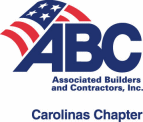 With last year’s passage of House Bill 857 in the North Carolina General Assembly, public contracting agencies in the Tar Heel State have no shortage of project delivery methods from which to choose. From design-bid-build to construction management at-risk, design-build, design-build bridging and P3s, our state statutes now authorize a veritable cornucopia of options for procuring public construction contracts.
With last year’s passage of House Bill 857 in the North Carolina General Assembly, public contracting agencies in the Tar Heel State have no shortage of project delivery methods from which to choose. From design-bid-build to construction management at-risk, design-build, design-build bridging and P3s, our state statutes now authorize a veritable cornucopia of options for procuring public construction contracts.
But the following tweet from ENR’s Tom Sawyer earlier this week got me wondering: is the state overlooking another viable procurement option?
Okay, fine, I’ve asked my question mostly in jest. I don’t really think contractor selection should be left to the vagaries of chance. I do, however, wonder whether a coin flip is any less fair to willing contractors than other procurement methods, particularly when bidder prequalification is used (abused?) to disqualify otherwise qualified builders.
Thankfully, our General Assembly has taken notice of the issue, appointing a legislative committee to review whether changes might be needed to North Carolina’s prequalification statute. Earlier this week, Dave Simpson (@CAGCNCBldgDiv on Twitter) of Carolinas AGC (“CAGC”) provided a report on the committee’s important work, portions of which follow:
CAGC Testifies to Legislative Committee on Prequalification.
CAGC last month made a presentation to a legislative study committee on the issue of prequalification, noting that public owners should have a level playing field for the construction industry. The State Purchase and Contract Study Committee has been directed to make recommendations to the short session of the N.C. General Assembly, which convenes May 14, 2014.
* * *
Mr. Marshall Gurley, a member of the committee and a leader in Carolinas AGC, can tell you about a number of other cases involving prequalification issues.
Last year, for example, for a structural repairs job at the NC Aquarium, DENR required that in order to prequalify for that job, a contractor had to pay for membership in the International Concrete Repair Institute. I told the engineer for the job at the time that this prequalification requirement of being a dues-paying member of this institute had nothing to do with the skills to do the job.
I also bounced this prequalification requirement off Norma Houston of the School of Government, who noted in a related email that “the prequalification statute is short and woefully silent on any specific process or requirements, and there is no case law in our state that interprets this statute.” She described this membership requirement as “at best unrelated to the nature of the contract and, at worse (if challenged) subject to being construed as arbitrary and capricious by a court.” For the record, the engineer agreed to remove the prequalification requirement.
The last thing anybody should want is arbitrary and capricious prequalification on public work as well as a public owner using potentially rational standards that instead may be cover to give preference to a select pool of candidates. That would not be in the best interest of the taxpayers, the owners or the construction industry.
Our CAGC policy on prequalification says that when it is used: “Public owners should always maintain the goal of qualifying, not disqualifying firms.” Other points in the policy include:
- Information that is subjective should not be used to prequalify a company.
- Prequalification criteria should be determined by the owner and address such factors as quality, performance, cost of oversight and timely completion.
- All prequalification systems should be designed to be objective rather than subjective in their evaluation processes.
- The owners’ expectations for the construction process and the final construction product should be well-defined and documented in the instructions to the applicant.
- Communication/Feedback is essential: Owners and contractors should communicate why a contractor was or was not selected since this information will assist the pre-qualifying firms in improving their capabilities and standing to pre-qualify for future projects.
* * *
Regardless of where this committee takes this issue, one thing is for sure: the prequalification statute – N.C. Gen. Stat. § 143-135.8 – is one of the shortest, if not the shortest, statutes on the books, with only nine words: “Bidders may be prequalified for any public construction project.”
We think that the government should always aim to keep a level playing field and, as our CAGC policy says:
“Public owners should always maintain the goal of qualifying, not disqualifying firms.”
I’ll be keeping an eye on the committee’s work, with the hope that legislative proposals might emerge aimed at making bidder prequalification for public projects more objective and uniform across the state. After all, procurement of public construction contracts in North Carolina should be fairer than a coin flip.
What do you think? Are prequalification procedures creating an unfair playing field in the competition for public contracts in North Carolina? What would you like to see done to address the problem? The Friday Forum microphone is all yours.







Pingback: Is Bidder Prequalification Reform Within Reach in North Carolina? | N.C. Construction Law, Policy & News
This is really interesting, You are a very skilled blogger.
I have joined your rss feed and look forward to seeking more of your excellent
post. Also, I have shared your web site in my social
networks!